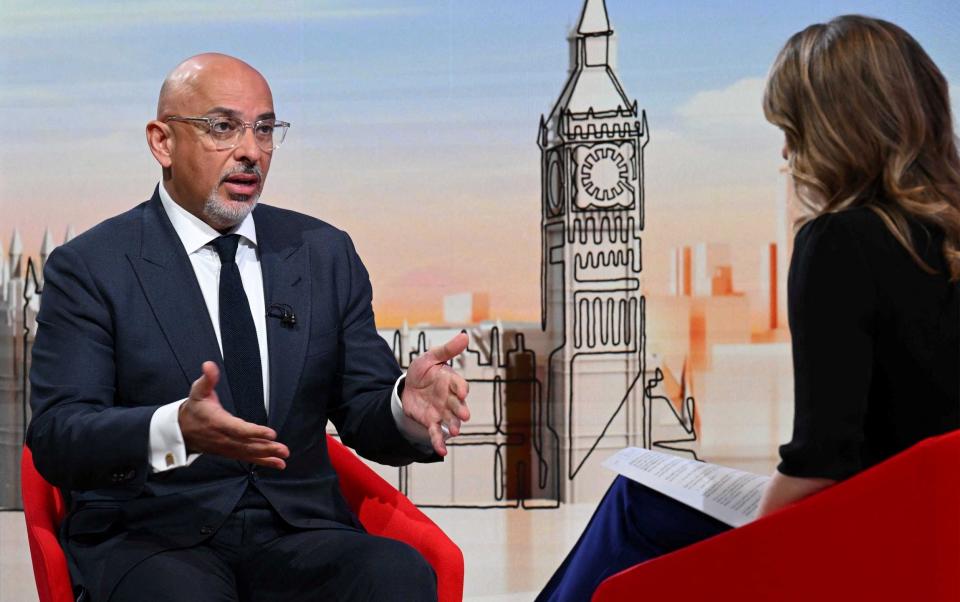Armed Forces 'to fill public service roles hit by strikes'

Two thousand military personnel and volunteers are undergoing training to fill in for strike-hit public services, the government has announced.
The emergency staff will stand in to support a range of services including Border Force at airports and ports in the event of strike action.
Soldiers and other Armed Forces personnel could also be deployed to roles including ambulance driving if a planned NHS strike goes ahead.
They could also serve as firefighters if members of the Fire Brigades Union vote in favour of industrial action.
It came as Nadhim Zahawi, the Tory party chairman, urged nurses and other public sector workers to accept below-inflation pay rises to help “send a clear message” to Putin.
The stand-in staff for the Border Force include 600 armed forces personnel and 700 from the government’s specialist “Surge and Rapid Response Team”, as well as other parts of the Civil Service.
Mr Zahawi told the BBC: "We are operationalising contingency plans with a surge capacity to make sure people are protected.
“It's unfair for the unions to damage people's lives and Christmasses. Let's not divide let's come together."
Speaking to Sky News, he said: “It is the right and responsible thing to do to have contingency plans in place.
“We have a very strong team at Cobra who are doing a lot of the work in looking at what we need to do to minimise the disruption to people’s lives.
“We are looking at the military, we are looking at a specialist response force which we set up a number of years ago. We have to make sure our borders are always secure and that is something we guarantee.
“Things like driving ambulances and other parts of the public sector – we have got to try and minimise disruption.”
Urging unions not to proceed with strike action, said: “This is a time to come together and to send a very clear message to Mr Putin that we’re not going to be divided in this way …
“Our message to the unions is to say ‘this is not a time to strike, this is a time to try and negotiate’.”
Decisions are yet to be taken on deploying troops to ambulance driving and firefighting but they are part of the range of options available should strike action in these areas go ahead as planned.
Deploying military support will be the subject of a Military Aid to the Civil Authorities (MACA) request from the relevant government department.
A number of unions have taken the decision to strike over the coming weeks, leaving millions of people facing disruption over the Christmas period. Some are asking for pay increases in line with inflation or even more.
The Cabinet Office’s COBR Unit, which acts as the department’s emergency planning and response team, is working continuously on scenario planning for potential emergencies that could have an adverse impact on the public.
Departments across government carry out their own contingency planning work but this is co-ordinated centrally in the Cabinet Office by the COBR Unit.
The government said the priority over the coming weeks is to protect the public who may need access to emergency services support and limit disruption as much as possible, particularly at a time when increased numbers of people will be travelling for the festive period and NHS services are under huge pressure due to the impact of Covid.
The Surge and Rapid Response Team was created in 2015, following a challenge from the Cabinet Office and the Head of the Civil Service to find innovative ways to improve operational resilience across the Civil Service.

 Yahoo Movies
Yahoo Movies 